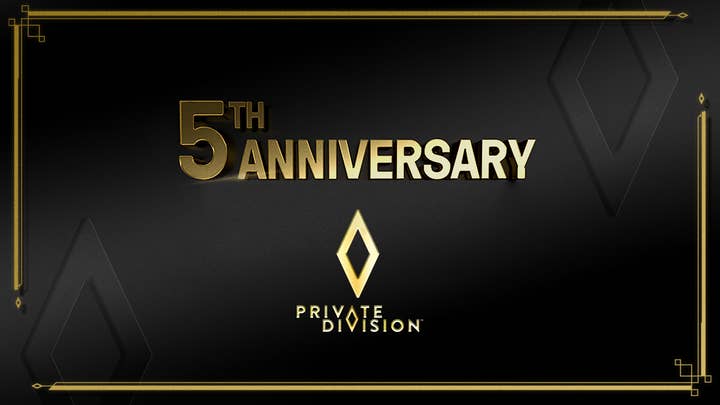Private Division Development Fund reaffirms label's small-scale push
Take-Two publishing label's leadership discusses the latest moves, release strategy, and unending competition in games
Sign up for the GI Daily here to get the biggest news straight to your inbox
These are busy days at Private Division. The company unveiled Piccolo Games' After Us at The Game Awards last week and followed that up today by announcing a new survival horror IP with Bloober Team and the Private Division Development Fund, an ongoing funding, and mentorship program aimed at smaller indie developers.
And in the middle of making all those plans, it's also taking time to look back and celebrate its fifth anniversary.
To mark the occasion, GamesIndustry.biz speaks with Private Division head and Take-Two chief strategy officer Michael Worosz, and Private Division head of business development Blake Rochkind about the label's business strategy, partnerships, and focus on smaller studios.
Top of mind is the Private Division Development Fund, which continues a push to work with smaller developers that the label discussed with us in March.
The fund aims to provide smaller developer mentorship and financial backing from the Private Division team. The initiative will be yearly, and it's described as another funding resource that game creators can use.
"We wanted to establish this fund as another way to make sure that we don't pass on a great thing"
Blake Rochkind
Rochkind explains, "We see tons of amazing games and we've seen tons of amazing pitches from smaller, maybe less proven developers than what we typically work with. But [they] still had tremendous potential and so we wanted to establish this fund as another way to make sure that we don't pass on a great thing."
He adds that the program is intended for game studios that are focused on self-publishing their games. Some of the criteria for the fund include income potential and the studio’s capability to self-publish.
Rochkind notes that the program is also an opportunity to increase diversity and inclusion within the games industry.
"It is hard for people to get sort of that first financing and we're proud of the fact that two-thirds of [our] initial developers are woman-led," he says.

Worosz emphasizes that The Private Division Development Fund doesn't have set targets on how many projects or studios to support.
And while the fund will naturally provide funding, Worosz believes the actual value it offers isn't quite measured in dollars and cents.
"There are lots of places in pools of funding and developers can go to," Worosz says. "They can go to venture capital now and go to later stage private equity. They can raise small business loans or government financing.
"But if they want expert help and advice that will align with the team? It's a good source of capital that's important to Private Division to help develop a brand."
"I think that game development is certainly not a straight line"
Michael Worosz
Of course, game development doesn't always go to plan, and Private Division's expertise hasn't saved it from having to delay titles here and there.
"I think that game development is certainly not a straight line," he acknowledges, noting that working from home and COVID-19 have made development for multiple platforms more complex.
The flow of game releases is something Private Division has to concern itself with. Despite the variety of titles the label works on, Worosz says it doesn't try to ship games around the same time as "that would be self-defeating."
"And we're also cognizant of what Rockstar, Take-Two might be doing in the market as well, and want to give each release its room to breathe."
Scheduling game releases is something Private Division gets more experience with these days, as Rochkind says the staff size has grown to the point where it can manage publishing duties for four or more titles a year."
It's not just Take-Two's titles that need to be considered. The wealth of competition in the industry -- a fact of life reinforced by the slew of games revealed alongside After Us at The Game Awards -- can't help but shape Private Division's strategy.
Rochkind expounds, "Many games are coming out, we welcome that competition, we're motivated by the competition. But I think we do recognize that competition exists, whether it's with other publishers or other modes of financing."
That has influenced its business strategy to work with smaller studios including Bloober Team and Piccolo Studio.
"We want to double down on a proven developer that had success," Worosz says. "We want to empower them with a development budget, a professional marketing effort, and for them, to take your game to the next level."
It's something a lot of indie publishers aspire to do, but not every indie publisher has the backing of a company the size of Take-Two.
"We think we have a financial ballast to make the development investments we need and ensure every game is successful with the right amount of marketing behind it," Worosz says.

